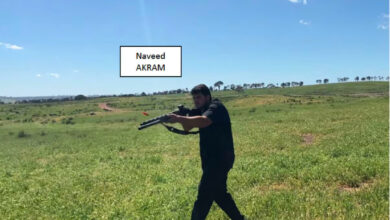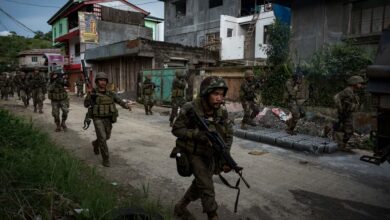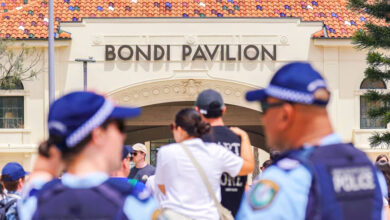One year after the death of Al-Qaeda founder Osama bin Laden, his network lies in ruins even if some supporters, whether lone wolf extremists or Al-Qaeda members, still brandish the jihadi banner.
The death of their figurehead and US drone attacks in the Pakistani highlands have disrupted Al-Qaeda's core guerrilla organization, now reduced to a few dozen militants battling for their own survival, experts say.
With the group's Saudi kingpin slain in a US commando raid, his chosen successor as Al-Qaeda's emir, Egyptian doctor Ayman al-Zawahiri, has not been able to unite the same loose global movement under his command.
"What gave substance to Al-Qaeda's global ambition was the person of bin Laden. He was a unique figure whom Zawahiri is incapable of replacing," said Jean-Pierre Filiu, a French academic and author of a book on Al-Qaeda.
"This son of a good family, who could have lived the most comfortable of lives but chose the asceticism and privation of the terrorist struggle, had a kind of romantic aura about him that was a very powerful draw," said Filiu.
"At no time in the past year has his successor marked public opinion by any act, pronouncement, initiative nor gesture."
Now lacking the means to carry out itself attacks with geopolitical clout like those of September 11, 2001, Al-Qaeda has focused on trying to inspire allied local groups and to claim credit for their victories.
In Yemen, Saudi Arabia's chaotic and poor southern neighbor, fighters from local franchise Al-Qaeda in the Arabian Peninsula (AQAP) carry out incessant attacks on government forces and have captured several towns.
In Somalia, the Islamist group Al-Shabab has pledged allegiance to Al-Qaeda's global jihad, and continues to resist pressure from a weak interim regime supported by African Union forces and periodic US strikes.
And in the countries of the Sahel desert, Al-Qaeda in the Islamic Maghreb has allied itself with Tuareg rebels who — reinforced by mercenaries fleeing the fall of Muammar Qadhafi's Libyan regime — have split Mali in half.
Meanwhile, many of the bomb attacks that still rock Iraq from week to week are blamed on surviving members of the once powerful Al-Qaeda in the Land of the Two Rivers that sprung up in the wake of the 2003 US invasion.
So, on a map of trouble spots in the Islamic world, Al-Qaeda's black banner is still very much in evidence — but experts caution that the various factions do not really amount to much more than the sum of their parts.
Only Yemen-based AQAP has attempted, with remarkably little success, to take the struggle beyond its local conflict and inflict more damage on the "greater enemy" — the United States — in the form of failed airplane bombings.
Beyond that, the global jihad has become a virtual movement in cyberspace, seeking to indoctrinate troubled Muslim loners or small self-radicalized cells in Western countries into carrying out unpredictable small-scale attacks.
But in a report published Wednesday, the European Union's police coordination agency Europol warned that such self-starters could become the new face of the threat.
"The more Al-Qaeda's core is under pressure, and the more difficult it becomes to prepare large scale attacks, the more Al-Qaeda will try to recruit individual supporters in the West to plan and execute attacks," it warned.
In March, a young Frenchman, 24-year-old Mohamed Merah, carried out three shooting attacks in and around the southern city of Toulouse, killing three off-duty soldiers, a trainee rabbi and three Jewish children.
Shortly before he was killed in an exchange of fire with the police, he claimed to negotiators to have been an Al-Qaeda member, but intelligence agencies have since found nothing to link him directly to the network.
He did make a personal trip to the Taliban's heartland around the Afghan city of Kandahar, but he seems to have taught himself his extremist ideology from Islamist texts he read in prison and on the Internet.
"It's not easy, because these individuals seem to be a mix of terrorists and people who have very big personal problems," the head of Canada's SCRS domestic security agency Richard Fadden told his country's Senate recently.
"My colleagues in Britain, in Australia and the United States think the same thing — we are already seeing an increase in the number of people who are acting as individuals, and that really makes our lives complicated."




